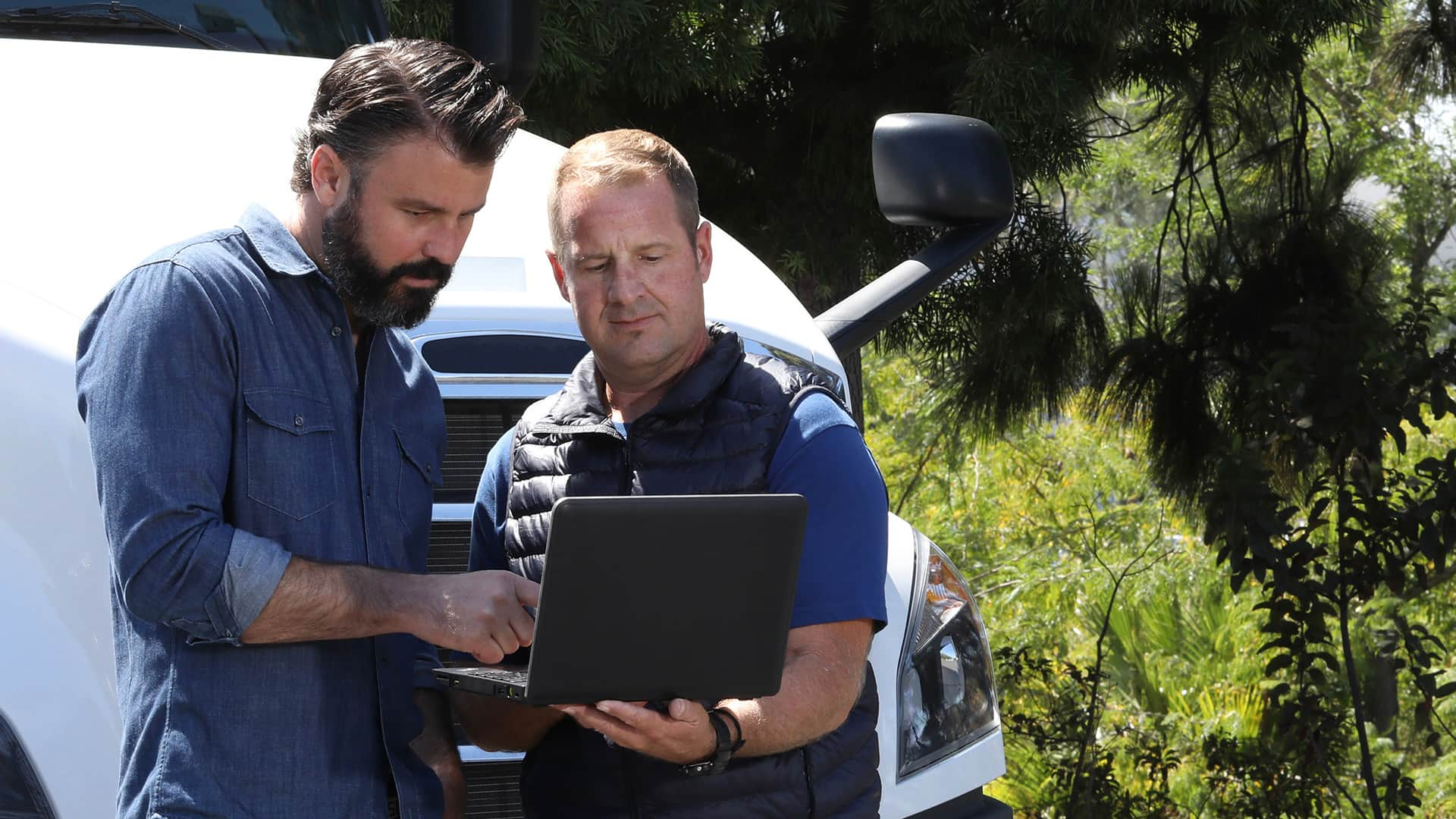Today’s fleet managers know that the drivers they hire are simply an extension of the company each time they drive a truck off the lot. As the saying goes, “the more you know as a hiring manager, the further your fleet will go.”
That’s why the information in the PSP (Pre-Employment Screening Program) driver report, a.k.a., the FMCSA PSP report (Federal Motor Carrier Safety Administration) and corresponding PSP scores provide crucial insights to help fleet managers keep fleet safety top of mind when they’re looking for the most qualified drivers.
But there are other aspects to consider as well…we’ll begin by exploring PSP scores and reports for truck drivers and then discuss other important qualities an overall fleet management plan should include to make the hiring process as seamless as possible.
What is a PSP CDL Report/Score?
The FMCSA PSP gives employers all the information they need to assess a driver’s qualifications to work in their fleet. The PSP driver report is just another way companies that implement a fleet management system can check all the right boxes. PSPs and CSA (Compliance, Safety, and Accountability) scores are often confused with each other, but it's important to understand that the two reports are vastly different.
In a nutshell, the FMCSA framework basically tracks a carrier’s safety performance and history. Each violation is evaluated as to whether the driver was held responsible for each violation or if the company was at fault for the infraction.
Information in the PSP driver report includes details such as the following:
Under the 5-Years of Crash and Violation History:
- Number of injuries and/or fatalities
- The DOT (Department of Transportation) Number of the driver
- Number and date of any crashes
- Whether the FMCSA reported the crash as preventable or unpreventable
Under the 3-Years of Inspection Activity
- Driver out-of-service and service rate hazmat inspections
- Out-of-Service inspections and service rate inspection details
- A violation summary
How to Read a DOT PSP Driver’s Report
Fleet managers must also stay on top of the PSP driver reports of their existing drivers. But what exactly is a bad PSP score or report? While the report itself does not assign a score to any violations, there are certain types of software that will provide employers with a further scoring system to assess a driver’s on-the-road behavior.
Examples of what might constitute a bad PSP score can include: fatigued driving, controlled substances, driver fitness, and cargo-related concerns, amongst other categories.
Going Beyond the PSP Report: What Else Should Fleet Managers Look For?
There’s never a perfect candidate for a position, but if several candidates have stellar PSP reports, who should you hire? Some fleet managers will require candidates to take personality tests or sit through many rounds of interviews, but there’s not always time for that, so hiring managers often ask simple questions and look for other attributes that they believe creates the ideal candidate.
Is the Candidate Mechanically Savvy?
While it’s not a prerequisite that a driver be as savvy as a technician or able to solve mechanical issues on a fleet’s vehicle, it’s doesn’t hurt to have someone who may be able to recognize and/or diagnose what the problem may be if they are en route and a mechanical problem occurs. In addition, there are often precursors to major mechanical problems that a more mechanically inclined person may be able to recognize before a major repair becomes necessary.
How are Their Vision and Hearing?
If someone is driving one of your fleet vehicles, you most certainly want to make sure that their hearing and vision is up-to-par. Some companies make hearing and vision tests a standard part of the vetting process. It’s just one more thing companies can do to minimize accidents or infractions and keep their insurance costs as low as possible.
Do They Have Good Communication Skills?
While a driver’s primary job is to make sure that products are delivered intact and on time, they are often considered the face of the company. As the fleet manager, you may have conversations with your customers, but the day-to-day, face-to-face interactions drivers have when completing a delivery can mean a lot to customers.
During the interviewing process, did the candidate maintain eye contact? Were they cordial and polite? And would you trust them as a representative of the values you espouse for your company?
Do They Have a Record of Being Punctual?
Punctuality means a lot when a company is trying to maintain a schedule. Given that there will always be unavoidable delays (i.e., traffic jams, accidents, construction slowdowns, weather issues), an employee who has a track record of being on time is a great trait. When conducting background checks with former employers, it’s a good idea to ask if they were punctual and always ready to work.
Closing Thoughts
Of course the PSP score and report for truck drivers is an integral part of the hiring process for any fleet manager, but to find an ideal candidate, don’t hesitate to think “outside the hiring box.” Safety is always job one but finding the ideal driver can sometimes be more about a combination of traits and not simply a PSP CDL score.
In addition, it’s good practice to keep an eye on the PSP CDL driving behaviors of your fleet’s drivers. After all, they are truly a reflection of your company and the reputation you maintain while your trucks are on the road.
RELATED:
- Everything You Need to Know About DOT Inspection Levels
- 2021 DOT Hours of Service Exemptions: What You Need to Know
To learn more about fleet safety, or to connect with a Lytx representative about our telematics systems or fleet dash cam solutions, please contact us here.
